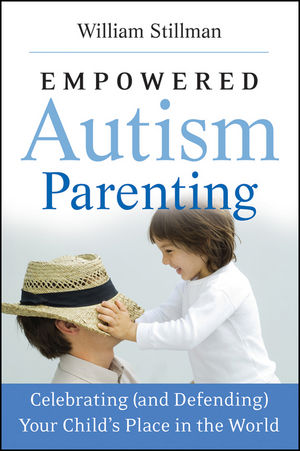Empowered Autism Parenting: Celebrating (and Defending) Your Child's Place in the WorldISBN: 978-0-470-47587-4
Paperback
224 pages
August 2009, Jossey-Bass
 |
||||||
“Hooray! Hooray! Finally a book that offers real hope and resources for parents of Autistic children to understand what their child is experiencing, and to make life for themselves and their child easier to manage. Mr. Stillman speaks from experience as a person living with Asperger's Syndrome and as an advocate for those on the spectrum who can't speak for themselves. An expert and passionate advocate for those with autism, William Stillman has written a commonsense guide for parenting children with autism. He believes that by giving those around the autistic child the information that they need to recognize their child's unique personality, will help liberate them from the culture of fear and the stigma so prevalent in our society. He demonstrates why the current methods that are used don't tend to work, and offers a ten-step guide for a better, more fulfilling relationship with children with autism. By believing that they are essentially competent to handle tasks, their lives are enriched and so are the lives of those around them.” --- Marta Hoelscher, BasilandSpice.com
“Empowered Autism Parents is thought-provoking. It offers hope and real-world information for parents of children with Autism. Stillman puts aside common misperceptions to reveal the truth: people with autism are intelligent, insightful and inspired-they just have a different way of showing their talents. And who would know better than someone who has spent his life advocating for himself and all those individuals who have been lucky enough to work with him?” --- Carine Nadal, Fabulously40.com
“Stillman, an adult with Asperger’s syndrome, encourages parents of children with autism to try to understand their child’s perspective of the disorder. He urges parents to discard a "fix-it" mentality and instead embrace their children as they are and to recognize their intelligence, and contribution to society, without viewing their difficulties or deficits as a hindrance. Stillman discounts the medical and diagnostic perceptions of autism to propose a reverence of those with differences and a desire to understand better their unique communication methods and insights.” --- Lisa M. Jordan, Library Journal



